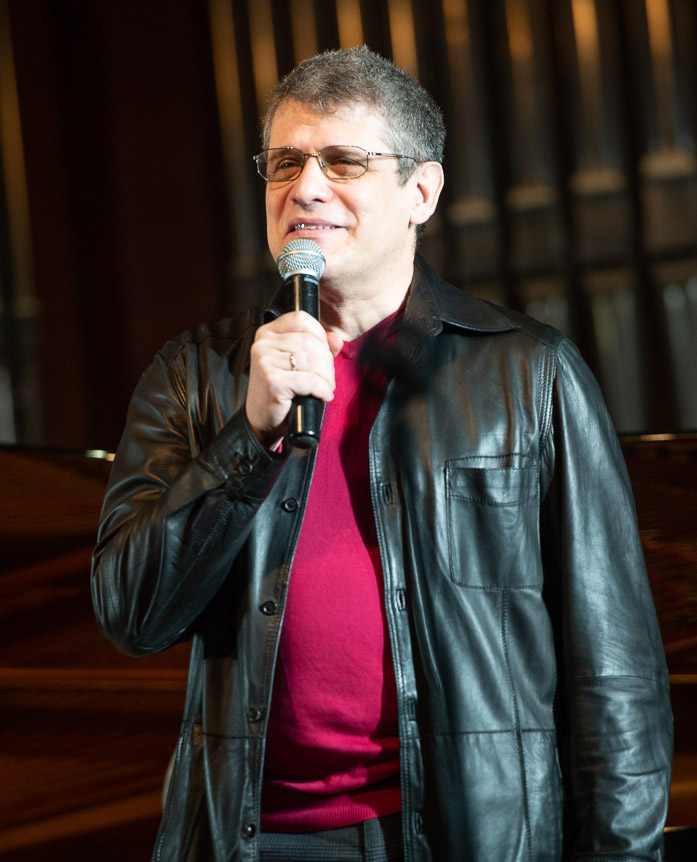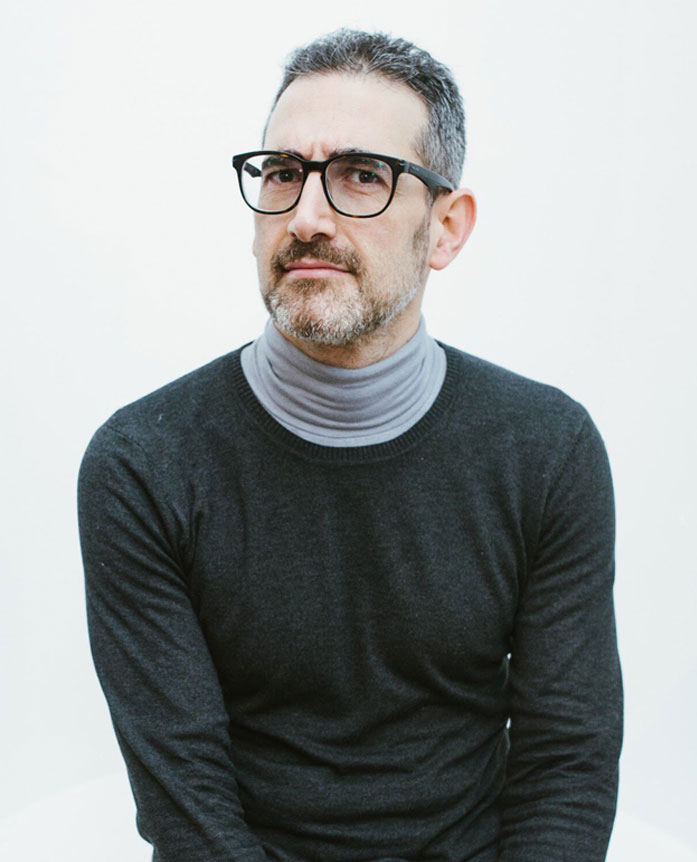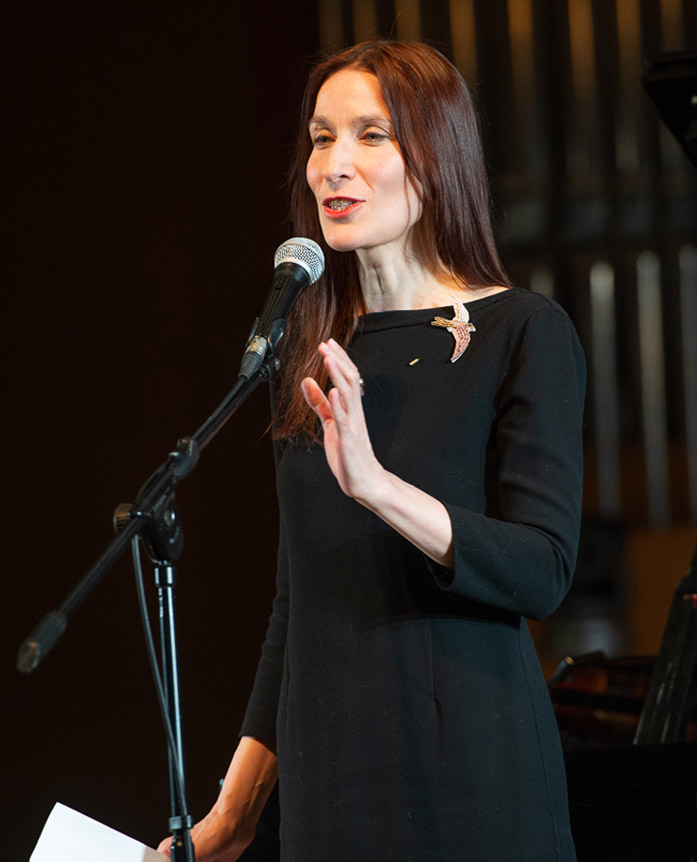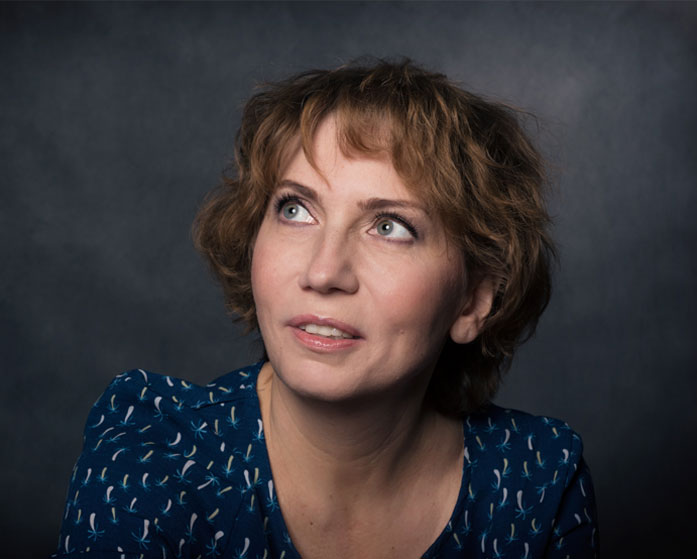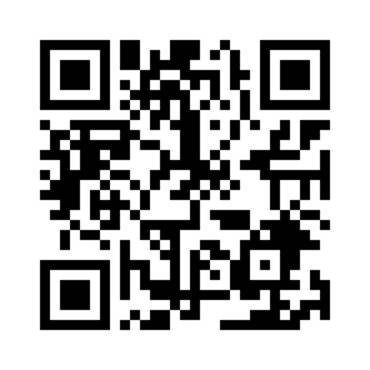Lecture series by Lyalya Kandaurova
February 19
"5 works that have changed the history of music" (Monteverdi, Beethoven, Wagner, Schoenberg, Stravinsky)
February 20
"Russian music: you can't help but know"
- - "Sadko" by Rimsky-Korsakov
- - Tchaikovsky's The Nutcracker
- - Stravinsky's Petrushka
- - Shostakovich's Leningrad Symphony
- - Prokofiev's Cinderella
February 21
"The Musical Twentieth Century: Names, Directions, Techniques"
Registration for participation
in 2021 is completed
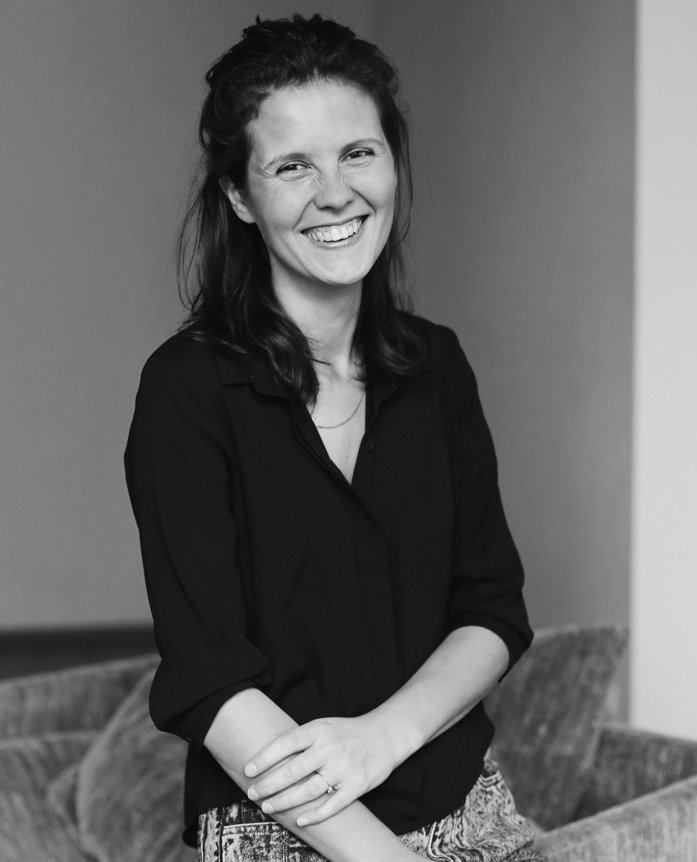
Lyalya Kandaurova
Violinist and classical music teacher, author of the book "Half an Hour of Music". Graduated from the Moscow State Conservatory. Writes about music in print and online editions and magazines. She is the author of cycles of lectures about music for children and adults. Nominee for the Illuminator Prize 2019.
